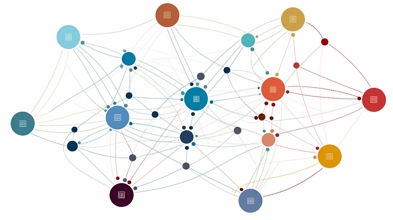Chronic Care Management
What is CCM?
Chronic care management is a specific care management service that provides coverage for patients with two or more chronic conditions for a continuous relationship with their care team. This includes formulating a comprehensive care plan, interactive remote communication and management (usually over the phone), medication management, and coordination of care between providers.
AYA Digital solution has complete functionality for managing patients with chronic diseases
AYA Digital automates entire care management workflow:
- Enrolling the patient
- Documenting medications
- Tracking phone calls and other interventions
- Generating reports needed for billing purposes
Eligibility
Chronic care management services are a Medicare and (most) private insurance-covered benefit for individuals with multiple (two or more) chronic conditions that are expected to last at least 12 months.
How it works
Under CCM, the patient’s care team can bill for time spent managing the patients' conditions. This includes formulating a comprehensive care plan, interactive remote communication and management (usually over the phone), medication management, and coordination of care between providers.
Since the provision of CCM falls under Medicare part B, both original Medicare and Medicare Advantage plans reimburse practitioners when CCM services are provided to eligible beneficiaries. Patients become eligible for the program by having two or more qualifying chronic health conditions that are expected to last at least 12 months or until their death, or if the patient's chronic health conditions put them at significant risk of death, acute exacerbation, or functional decline.
Chronic care management is beneficial for patients in terms of ongoing health and wellness support, increased access to appropriate medical resources, enhanced communication with members of their care team, reduction in emergency room visits and hospitalization or readmissions, and increased engagement in their own healthcare. CCM, however, is not just good for patients. CCM benefits for practitioners include improved care coordination; strengthened patient satisfaction, compliance, and engagement; and increased revenue.
Goals and benefits
People with multiple chronic conditions are at an increased risk for poor quality of life. The overarching goal of chronic care management is to help patients achieve a better quality of life through continuous care and management of their conditions. In a chronic care management program, a patient might have reduced pain and stress, increased mobility and physical fitness, and better sleep and relaxation. Ideally, a patient would be able, to some extent, to return to the activities, like work or hobbies, that their chronic conditions have prevented them from.
In the United States, the Office of the Assistant Secretary for Health reports that approximately 1 in 4 adults, 1 in 15 children, and 3 out of 4 seniors have multiple chronic conditions.
A goal of the healthcare system in chronic care management is to support patient self-care. CCM places more emphasis on individual behavior and a person’s responsibility in managing their health more effectively and independently. Patients with chronic conditions play an essential role in monitoring their health and any changes in it.
Patients should be educated on the benefits of their treatment and motivated to comply with their treatment regimen. Research shows that patients involved in decisions about their care experience better health outcomes. Obviously, in many cases, the patient’s desire is a cure. A more realistic goal for a condition like say, diabetes, is an improved state and quality of life while living with the disease. An ideal model for care of those with multiple chronic conditions is a collaboration between engaged patients and coordinated medical professionals.

